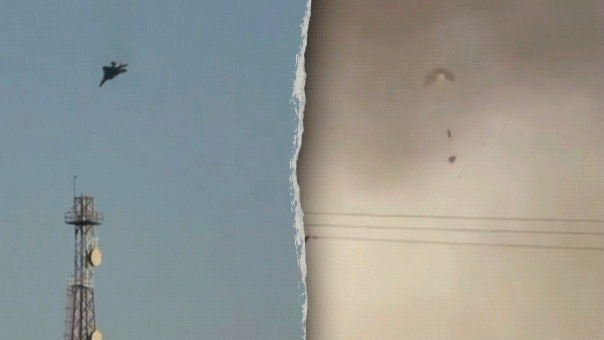
Sen. Rand Paul, R-Ky. speaks at a news conference on Capitol Hill in Washington, Tuesday, July 18, 2017. President Donald Trump blasted congressional Democrats and "a few Republicans" over the collapse of the GOP effort to rewrite the Obama health care law. (AP Photo/Andrew Harnik) (AP)
You can learn a lot about a war from its name.
Take for instance the Spanish-American War. The combatants are pretty clear. It’s like Red Sox/Yankees. You immediately know who was against who.
Try the Napoleonic Wars. Not as clear. But there were sure a lot of them. Five in fact, mostly with Napoleon Bonaparte leading the French.
And then there are wars with time designations. The War of 1812. Tells you everything you need to know. Informative. Less clear are clashes like the 30Years War or the 80 Years War.
This brings us to current U.S. wars. The United States has been involved militarily in or around Iraq since the late summer of 1990. Congress approved a resolution for the “war on terrorism” after the 9/11 attacks in the fall of 2001. A year later, Congress okayed a resolution to fight Iraq. Now there’s a debate on Capitol Hill about how to get a handle on current engagements – even though lawmakers of both parties argue Congress isn’t following the Constitution.
Is the U.S. still prosecuting the Gulf War? The War in Afghanistan? The War on Terrorism? The War on ISIS? The War on ISIL? Sans a clear signal from the House and Senate, detractors portray the 2001 and 2002 votes as authorizations for “never ending war.”
That’s where Sen. Rand Paul, R-Ky., and some liberal Democrats come in.
Few lawmakers argue the U.S. shouldn’t be involved militarily overseas trying to root out security threats. But the question is whether the U.S. should still enlist 2001 and 2002 congressional war authorizations for these operations.
Paul drafted an amendment to a defense bill which would have sunset both authorizations. That would have compelled Congress to create a new blessing for the deployment of forces abroad. Lawmakers typically refer to such a resolution as an “authorization for use of military force” or AUMF. Article I, Section 8 of the Constitution vests Congress with the power to “declare war.”
“We set up our founding document to try to make war difficult,” said Paul in his effort to repeal the old consents and come up with something new.
Senate Majority Leader Mitch McConnell, R-Ky., wasn’t buying it.
“To rescind the AUMF that authorizes action against these forces and to leave nothing but uncertainty against our allies is simply irresponsible,” said McConnell of the plan from his Bluegrass State colleague.
Paul didn’t get a straight up or down vote on his amendment. But he did get some semblance of a roll call when Senate Foreign Relations Committee Chairman Bob Corker, R-Tenn., moved to table the measure. Moments later, the Senate did just that, scrapping Paul’s gambit 60-36.
Most Democrats voted against killing Paul’s amendment. Paul and Sens. Mike Lee, R-Utah, and Dean Heller, R-Nev., were the only GOP nays.
“This would be a different debate and a different vote if we had before us an actual AUMF which would immediately supersede the existing authorities,” said Sen. Jack Reed, D-R.I., the top Democrat on the Senate Armed Services Committee.
The Rhode Island Democrat counseled his colleagues that such a scenario was unwise because the military would have to begin withdrawal contingencies now – even if Congress okayed a new AUMF later. However, the problem with that line of thinking is that the U.S. could never consider withdrawing. That means the U.S. is committed, perhaps to “never ending war.”
That’s why Paul wants lawmakers to assert Constitutional war-making responsibilities.
“We give the power to Congress because we fear the perpetual war that went on in Europe,” said Paul. “At this particular time, there are no limits.”
Sens. Tim Kaine, D-Va., and Jeff Flake, R-Ariz., have long pushed for a revised AUMF. Both senators were reluctant to vote against sidetracking Paul’s plan without an updated AUMF in place.
“Sixteen years is very unwise to let war happen on auto-pilot,” said Kaine.
House Speaker Paul Ryan, R-Wis., believes the Trump administration “should take the lead” on an AUMF. But the speaker says “I think that’s in our interest to have a new one.”
But the Trump administration contends it wields all the authority it needs and dismisses guidance from Capitol Hill.
“I would hope that we always would revisit something that is now 16 years old,” said House Minority Leader Nancy Pelosi, D-Calif., about the original, post-9/11 AUMF.
The Senate may have neutralized Paul’s effort Wednesday. But at the same time, this is the deepest either the House or Senate has waded into the AUMF debate since the fall of 2002.
It’s unclear precisely what the U.S. is now fighting against a host of enemies in a panoply of theaters. That’s why it’s hard to know what to call the conflict. The 15 Years War? The 16 Years War? The Hundred Years War? Or the “war without end?”
Time will tell. Or perhaps, a congressionally mandated AUMF will.
Capitol Attitude is a weekly column written by members of the Fox News Capitol Hill team. Their articles take you inside the halls of Congress, and cover the spectrum of policy issues being introduced, debated and voted on there.












































